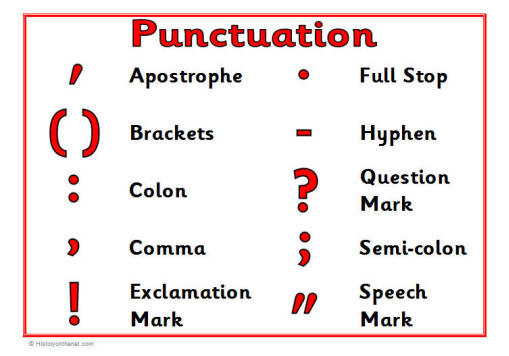03 Mar
2017
Punctuating my thoughts…
The nature of our work at Prompt Proofing, both in writing and editing, necessitates paying close attention to the appropriate use of punctuation marks. I have close friends who, while undeniably accomplished, knowledgeable and highly intelligent, are nonetheless frequently dismissive of my supposedly obsessive concern with correct punctuation. They argue that worrying about commas and hyphens is petty and will detract from the creative flow of their writing. My consistent response – that punctuation is needed for clarity and understanding – often falls on deaf ears.
Examples abound of imaginary scenarios where punctuation changes the entire meaning of the written word, see examples below:
1. (In a telegram supposedly sent within Russia in the early 20th century with regard to a prisoner’s fate.)
Pardon impossible, to be sent to Siberia.
Ah, poor man; but consider if the comma was misplaced and the telegram should have read thus:
Pardon, impossible to be sent to Siberia.
Suddenly the humble comma becomes vitally important.
2. “Let’s eat, Grandma.”
A common enough request but let’s see what happens if we remove that comma:
“Let’s eat Grandma.”
Now we have terrifying little cannibals.
Punctuation is indeed essential, very often, if ambiguity is to be avoided. As – apparently – a punctuation aficionado, I was amused and intrigued by Philip Cowell’s article below as published on the BBC’s website this morning.
http://www.bbc.com/culture/story/20170301-what-overusing-exclamation-marks-says-about-you
His apparent topic was the overuse of the exclamation mark (or exclamation point, depending which side of the Atlantic you are on). This overuse has become pandemic on social media and Mr Cowell was making particular reference to President Trump’s use of exclamation marks/points on Twitter and what this may indicate about the president’s personality. However, the entire article makes fascinating reading, giving us an encapsulated history of the evolution of punctuation marks in general, and exclamation marks in particular; it’s well worth a few minutes of your time if the topic interests you, which, if you’re reading this post, it presumably does.
Below is an extract from the article that I particularly enjoyed as it elevates what most would consider to be a rather dry subject to the realms of poetry – read and enjoy.
The exclamation mark is certainly not an uncomplicated piece of punctuation: but this is no sophisticated colon ‘delivering the goods that have been invoiced in the preceding words’ (the Fowlers again); nor is this the ‘drooping moustache’ of the semicolon with a ‘gamey taste’ (Adorno). The exclamation mark lacks the rigour of the life-breathing comma, sorting out our lives for us, bit by bit, and it certainly doesn’t have the pace of the dash – used so beautifully devastatingly by Emily Dickinson. No subtlety for the exclamation mark, unlike the ellipsis – spot those hidden ‘lips’ – with that sense of a kiss… Philip Cowell
The Fowlers were referenced earlier in the article (in case you were wondering):
… it was the lexicographer Fowler brothers, in their King’s English from 1906, who called for all quiet on the exclamation front, arguing in favour of the ‘lighter’, more minimal punctuation we still use today – a backlash against the grammatical excesses of their grandparents.
The Adorno quote refers to Theodor Adorno, a German philosopher and composer.
Happy punctuating and please, think twice before peppering your communications with exclamation marks; it may tell the reader rather more about your personality than you wish.




